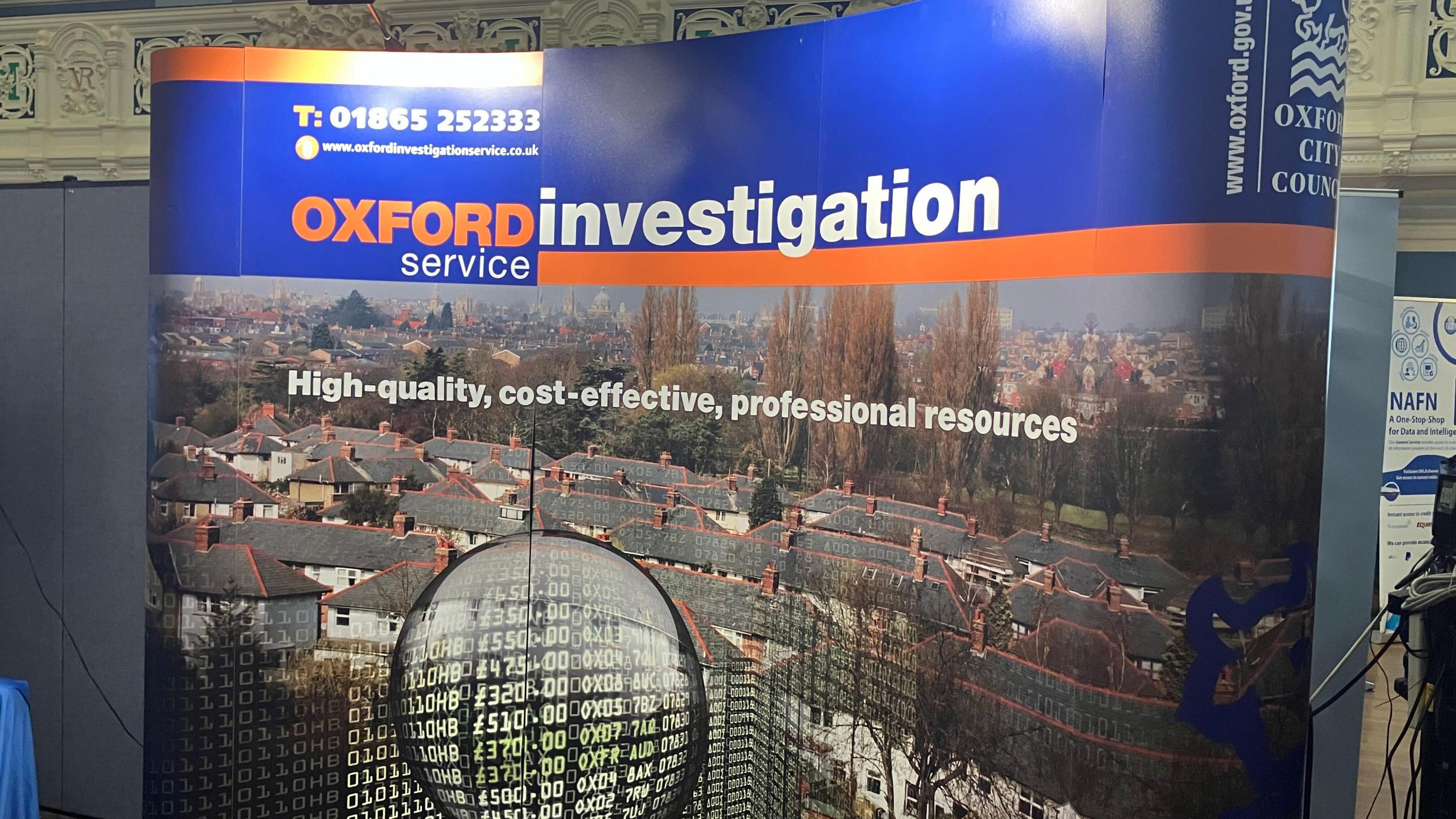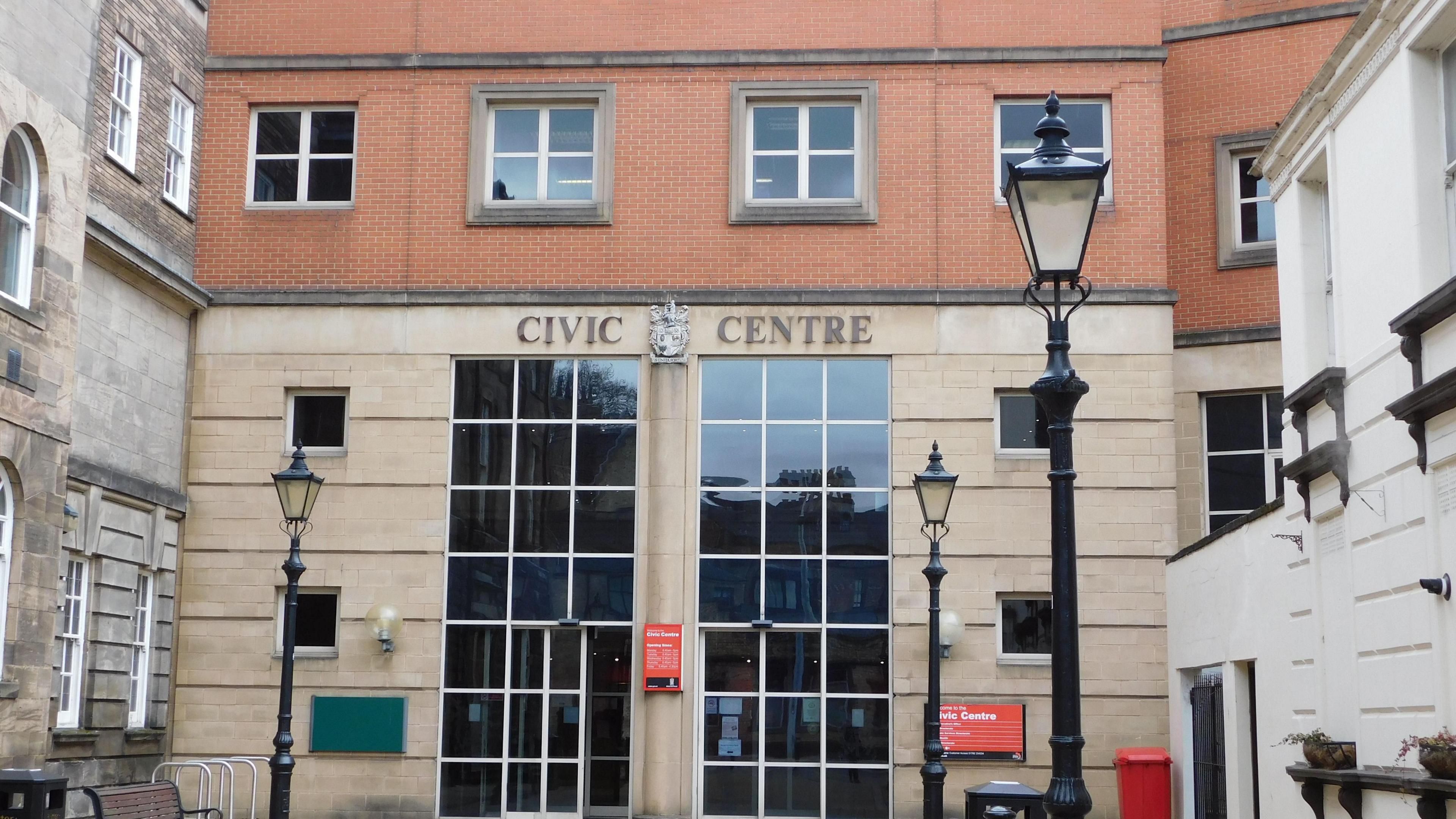The former fraudster helping councils catch criminals

Alex Wood racking up hotel bills of almost £12,000
- Published
Alex Wood says that to his "mother's shame" he committed some of the most "high profile" financial offences in recent history.
Those crimes span from staying in Mayfair hotels pretending to be the Duke of Marlborough to Authorised Push Payment (APP) fraud where victims are convinced to transfer money, thinking they are sending it to their bank.
But perhaps his mother would be prouder of his more recent career. Since being released from jail in 2022, he has been advising organisations such as law firms, insurers and local councils on strategies to tackle fraud.
"You often hear in an organisation 'try and think like a fraudster'... but it's very, very hard unless you've been there and done it," he said.
Mr Wood was one of the keynote speakers at Oxford City Council's ninth annual Fraud Conference.
It is increasingly becoming a key date in the calendar for those tasked with protecting taxpayers' money from fraudsters - a place where experts can swap tips and discuss the next big threat.
Many believe artificial intelligence (AI) is the thing to look out for.
"AI enables fraudsters to become so much more sophisticated and discharge their fraud in a easier way," Mr Wood said.
"It will just make things harder to detect, so we need to then come up with AI strategies that counter that."

Oxford Investigation Service is run by Oxford City Council - but also offers counter fraud services to other authorities around the UK.
The pay-off for catching those trying to commit fraud against councils is big.
Oxford Investigation Service is the specialist team charged with protecting Oxford City Council from fraudsters - and also offers its expertise elsewhere in the country.
Oxford City Council says the investigation service saved it £7.4m in the past financial year through fraud prevention and detection. That is more than 30% of the council's net budget of about £24m.
It say this this is achieved through things like detecting fraudulent housing and Right to Buy applications.
The team carries out investigations both online and via face-to-face visits if they suspect wrongdoing.
Beyond the money - there is also the impact fraud has on residents, according to city council deputy leader Ed Turner.
"If we've got 58 people getting social housing which they're not entitled to, those are 58 people that don't have the social housing that they need," he explained.
"And that is a huge impact on the individuals and families involved, particularly in an area with a housing crisis."

The risk of tenancy fraud is on the rise in Oxford, with people using short term let sites like Airbnb to sublet council homes.
One of the top priorities for the team currently is tenancy fraud.
Scott Warner, counter fraud manager at Oxford City Council, said: "Oxford has got the highest private sector market rents outside of London, so it's lucrative if you are a fraudster looking to sublet a council home.
"And that risk has increased with the recent evolution of short-term lets, including things like Airbnb."
But Mr Warner says they are also constantly on the lookout for new scams.
"The evolution of fraud doesn't stand still and the bad guys are always trying to get one step ahead of us," he added.
Get in touch
Do you have a story BBC Oxfordshire should cover?
You can follow BBC Oxfordshire on Facebook, external, X (Twitter), external, or Instagram, external.
Related topics
- Published26 July 2024

- Published5 July 2024

- Published31 July 2023
